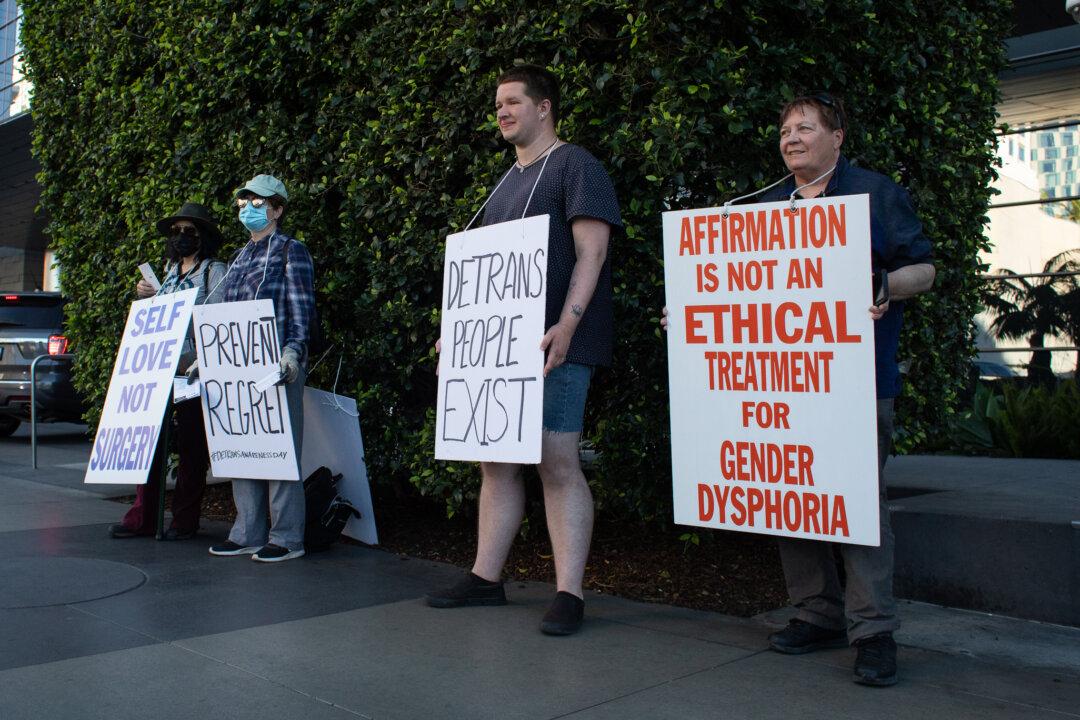LITTLE ROCK, Ark.—Laura Smalts, a 40-year-old newlywed with long, wavy brunette hair, beams when she talks about her husband of seven months.
But Smalts’ brow furrows and she looks down when recounting the years she spent as “Jake,” her transgender alter ego. Jake sported a beard after testosterone injections and a masculine-looking chest after a double mastectomy.





